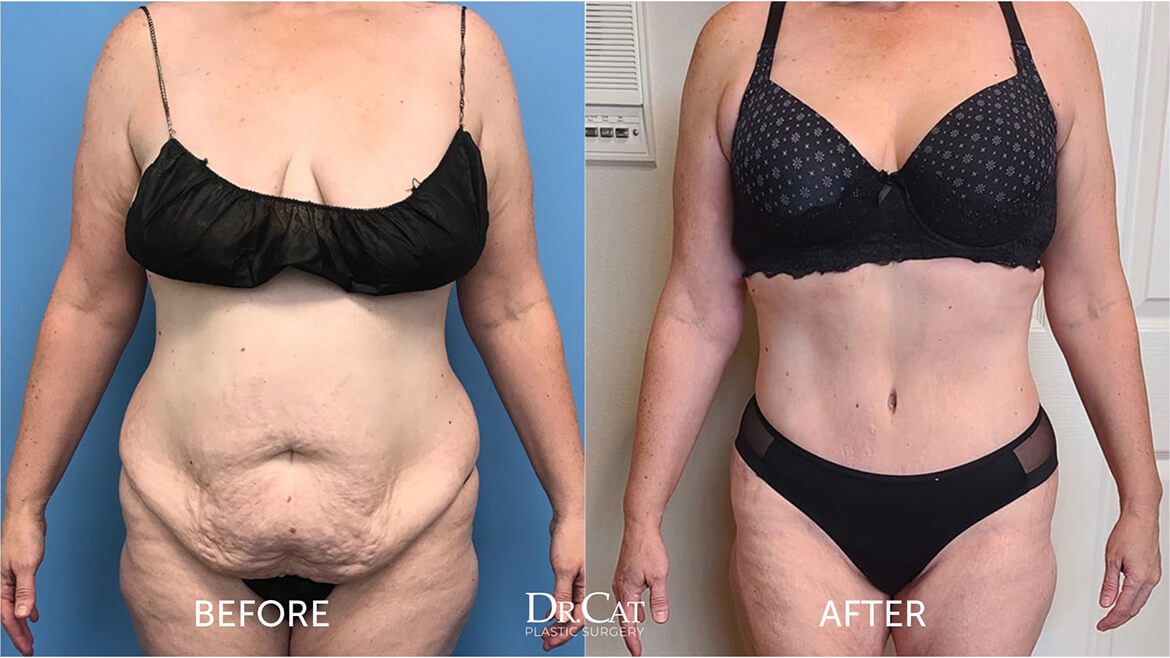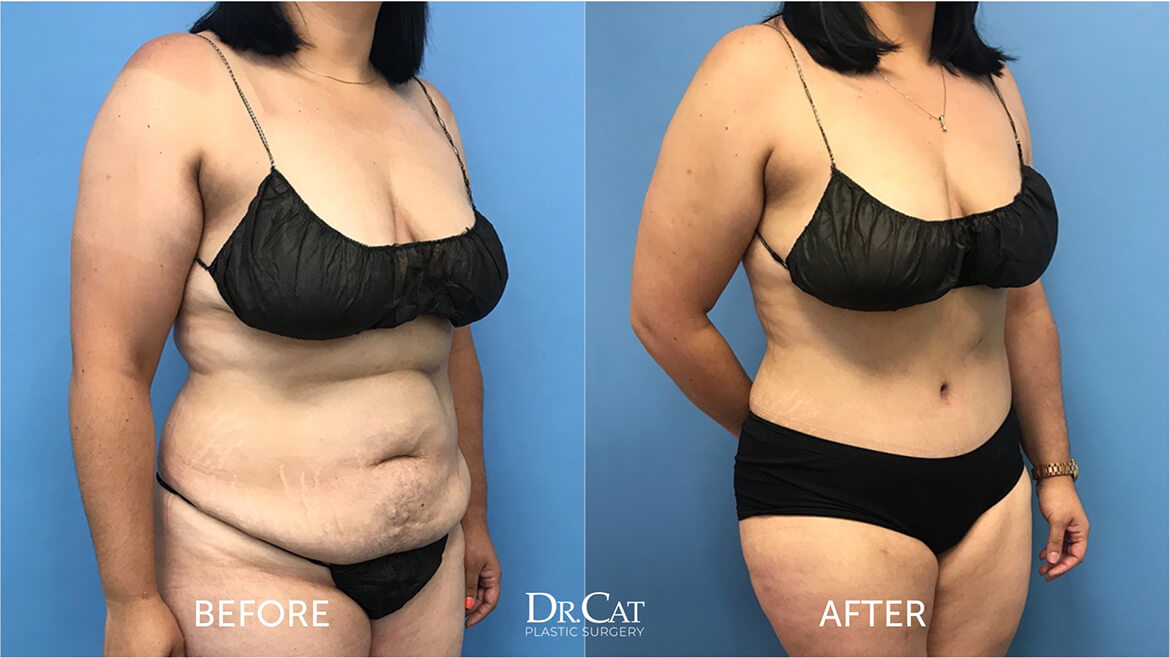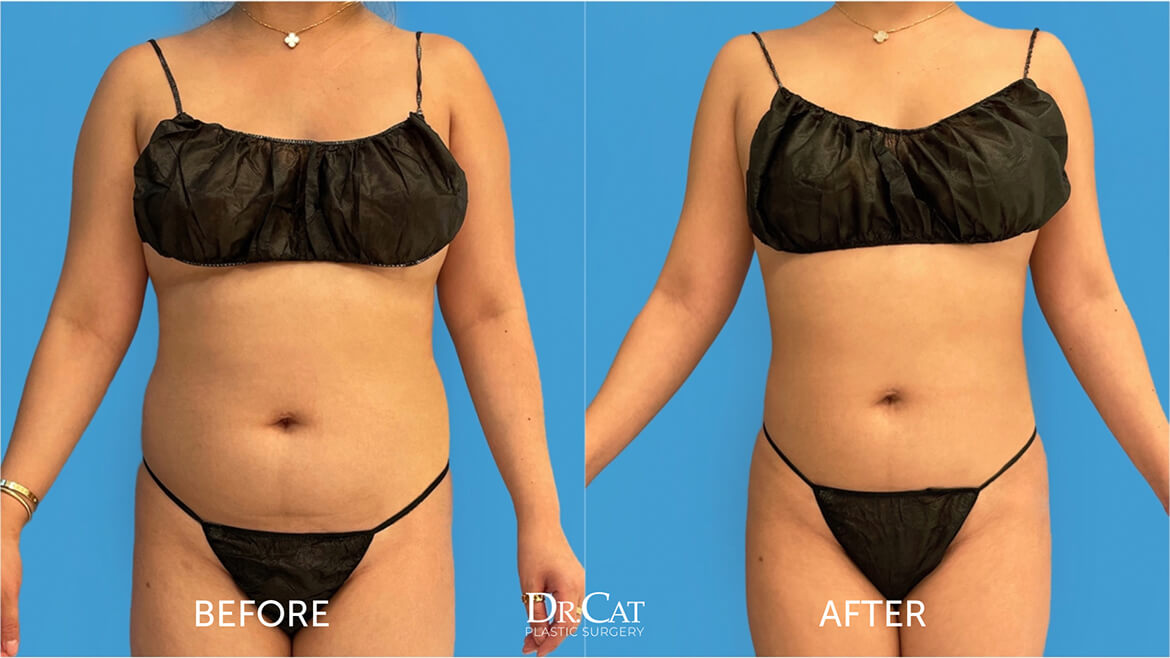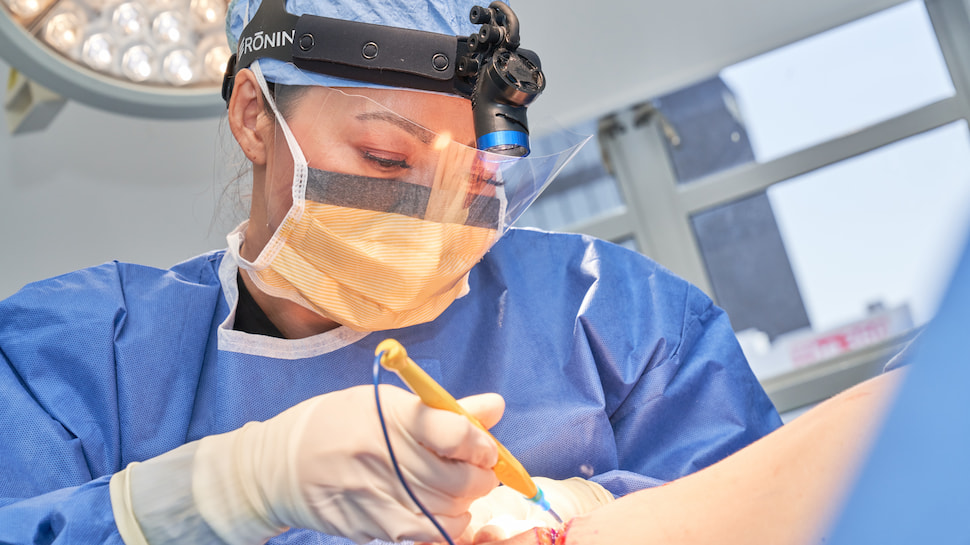Is there a BMI requirement before you can undergo cosmetic surgery? For your safety, there are some BMI requirements that need to be met before you can undergo plastic surgery. It’s important to understand that popular surgeries that tighten and tone the body, a tummy tuck or thigh lift, are not for weight loss. In fact, patients should be extremely close to or at their goal weight before undergoing these types of plastic surgery. Read on to learn why these requirements are in place and how you can become a candidate for surgery and achieve your goal results with the support of an experienced plastic surgery team.
What is BMI?
You may hear the acronym BMI but what does it really mean? BMI stands for body mass index. BMI provides a ratio that places weight into a context against height to better assess how much body fat an individual has. This provides a more informed measurement of a body rather than just measuring pounds on a scale.
BMI can show individuals who are underweight (BMI under 18.5) or overweight (BMI over 25). You can use the CDC’s online BMI calculator to at any time determine your current BMI, just by entering your height and weight.
What is the BMI requirement for plastic surgery?

“A patient’s BMI will need to be 30 or below for surgery,” explains Dr. Cat. Any BMI over 30 is considered in the obese range by the CDC, which means there could be health implications and risks from undergoing surgery, particularly a type of cosmetic fat removal surgery. It’s important to understand the implications of further weight loss or subsequent weight gain on plastic surgery.
Why is BMI important for cosmetic procedures?
“I take great pride in prioritizing the safety of my patients and making sure they receive the best results possible with no complications,” says Dr. Cat. Part of that safety is making sure each patient is a good candidate for undergoing plastic surgery by reviewing their BMI. Plastic surgery involves general anesthesia which carries some risk. For patients who are obese, this risk can be far greater. In addition, patients who are significantly overweight can experience a greater chance of post-surgery complications and infection. This is due to a weakened immune system and chronic inflammation which is a common side effect of obesity.
Since cosmetic surgery is elective and not life-saving surgery, for these reasons alone, it’s much safer to wait until you are at your goal weight before undergoing cosmetic surgery. Dr. Cat conducts an extensive pre-surgery evaluation to make sure every patient under her care is a good candidate for surgery.
What is the best BMI for plastic surgery?
Dr. Cat advises her patients to be 5-10 pounds away from their goal weight for surgery. Beyond the safety concerns of surgery, there are other reasons to be close to a healthy goal weight prior to surgery. Being at your goal weight will reduce the need for revision surgeries that can be necessary when there is significant weight loss or gain post-surgery.
Is there a best BMI for a tummy tuck?

Wondering what the right BMI for tummy tuck is? There is some leeway when it comes to tummy tuck surgery. “Tummy Tucks can sometimes be performed on patients with a slightly higher BMI,” explains Dr. Cat, “if the patient is young, healthy, and has undergone extensive cardiovascular testing.”
“I take great pride in prioritizing the safety of my patients and making sure they receive the best results possible with no complications,” says Dr. Cat.
However, it’s important to approach a tummy tuck as a cosmetic procedure meant to tighten, tone and remove the most stubborn fat deposits. It is not, however, a weight loss strategy. This is particularly important, because an individual’s weight loss journey can train them for life post-surgery. After learning what works and what doesn’t for them to personally keep the weight off, they are ensuring greater long-term success. Otherwise, patients can run the risk of re-gaining weight, which can damage or eliminate the benefits of their past cosmetic surgery procedures.
What is the best BMI for liposuction?

Similarly to other types of cosmetic surgery, it’s best to have a BMI of under 30 for liposuction surgery. This doesn’t necessarily mean you need to be thin to undergo a body sculpting procedure like liposuction. However, you shouldn’t have more than 20 to 30 pounds to lose when attempting to undergo liposuction as it is not a weight loss procedure. It’s a comfort to know however that at Dr. Cat Plastic Surgery, your health and safety are the primary concern. Dr. Cat will only agree to perform your procedure if you have been cleared by your healthcare provider and meet her requirements.
How can I become a good cosmetic surgery candidate with a healthy BMI?
If you’re interested in a body sculpting fat removal procedure like liposuction or a tummy tuck, but are not a candidate because of a high BMI, there are steps you can take to get closer to your goal and healthy weight:
- If you smoke, enroll in a smoking cessation plan with the help of your healthcare provider
- After being cleared by your physician, maintain a physical fitness program that involves both cardio and weight-resistance exercises.
- Aim to walk for at least 20-30 minutes every day.
- Work on a calorie-deficient diet that is high in protein and nutrients, that is filled with whole foods like fruits, vegetables, fish, and nuts.
- Add more fibrous foods to your diet, such as nuts, beans, whole wheat bread, and pasta.
- Limit or eliminate alcohol from your diet.

Learn About Your Plastic Surgery Options in Beverly Hills
If you believe you’re a good candidate for fat sculpting surgery such as liposuction or a tummy tuck procedure and want the world-renowned skill of one of Beverly Hills’ most in-demand cosmetic surgeons, reach out to Dr. Cat’s team. They are happy to answer all of your questions, from what it is involved in traveling to Los Angeles for plastic surgery to specific procedure requirements. You’ll get all of the information you need to make the right decision toward achieving your appearance goals.


